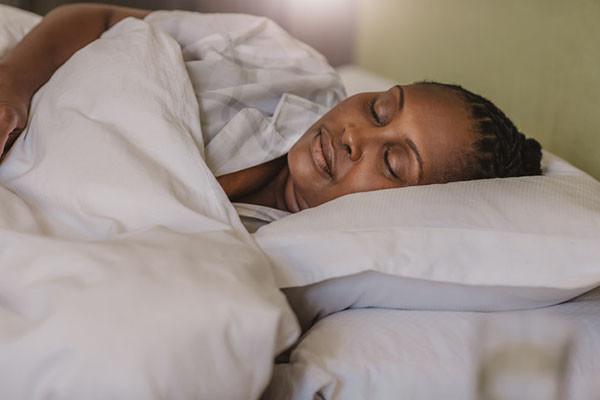
New thinking about plaque in arteries that feed the brain

Want to prevent shifting teeth? Maybe you need retainers

What you need to know about the new dietary guidelines

Food that’s healthier for people and planet can be cheaper, too

New evidence that polyphenol-rich foods help the heart

8 simple ways to reduce ultra-processed foods in your diet

How to curb your stress eating

How to spot Parkinson’s disease symptoms

Heart failure symptoms in women: How they’re different

GERD diet: Foods to avoid to reduce acid reflux
Sleep
- Reviewed by Sogol Javaheri, MD, MPH, Editorial Advisory Board Member, Harvard Health Publishing
“Why can’t I sleep?” has become a common complaint among Americans. An estimated one-third of adults sleep six hours or less a night, which can have serious health consequences. Inadequate sleep (generally defined as less that seven hours a night for most adults) increases the risk of obesity, diabetes, and heart disease. Poor sleep is also associated with sluggish reaction time, memory lapses, and a higher risk of headaches, stomach issues, and sore joints.
Many factors, including aging, health conditions, lifestyle habits, and poor sleep hygiene, can make sleeping difficult. Some people also suffer from sleep disorders like insomnia and sleep apnea.
People can improve their sleep quality by addressing underlying issues affecting sleep, improving their diet, exercising more, and establishing healthy sleep habits.


New thinking about plaque in arteries that feed the brain

Want to prevent shifting teeth? Maybe you need retainers

What you need to know about the new dietary guidelines

Food that’s healthier for people and planet can be cheaper, too

New evidence that polyphenol-rich foods help the heart

8 simple ways to reduce ultra-processed foods in your diet

How to curb your stress eating

How to spot Parkinson’s disease symptoms

Heart failure symptoms in women: How they’re different

GERD diet: Foods to avoid to reduce acid reflux
Free Healthbeat Signup
Get the latest in health news delivered to your inbox!
Sign Up

